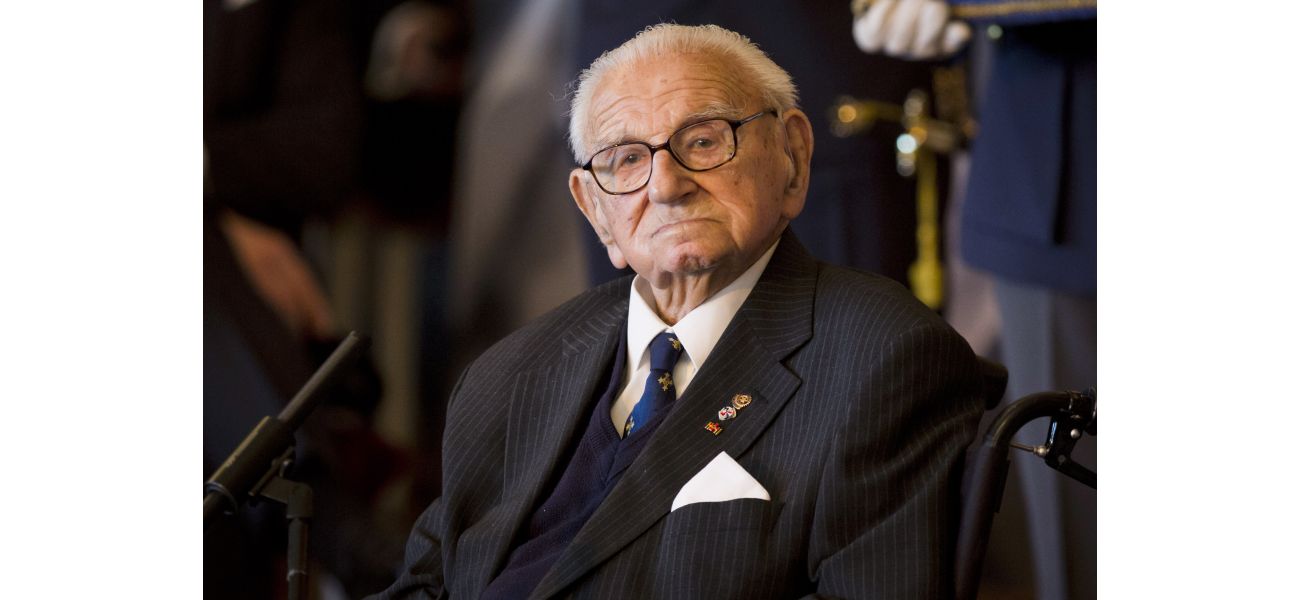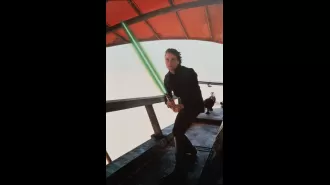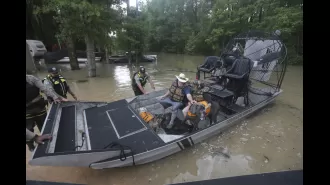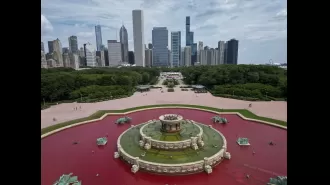Nicholas Winton saved my life and I will remember him today.
In 2008, I attended the premiere of The Power of Good: Nicholas Winton with my family.
December 2nd 2024.

In 2008, my family and I had the privilege of attending the premiere of the documentary, The Power of Good: Nicholas Winton. The film told the remarkable story of Sir Nicholas Winton, a young English stockbroker who, in the years leading up to World War II, saved 669 refugee children from Nazi persecution in Czechoslovakia. My mother, Liesl Silverstone, was one of those children, and the director of the film, Matej Minac, had interviewed her, my brother Rob, and myself prior to its release.
As we watched the film, it was incredibly emotional for my mother and I, especially the scenes where the children were forced to leave their families behind at the train station. After the screening, Sir Nicholas was introduced to the audience by journalist Esther Rantzen, and the room erupted in applause. I couldn't help but feel indebted to him for what he had done for my family and countless others.
Rantzen then asked all the Kindertransport survivors in the audience to stand, and my mother was among the 20 elderly individuals who rose to their feet. It was a powerful moment, reminiscent of the 1988 television program, That's Life, where Sir Nicholas had reunited with some of the children he had saved. She then asked all those who wouldn't be there if not for Sir Nicholas to stand, and half of the audience, including myself and my family, stood up. It was a moment I will never forget, realizing that without him, none of us would be there.
My mother, Liesl, was born into an upper-middle class Jewish family in Teplice, Czechoslovakia, in 1927. Her father and grandfather owned a successful glass factory, and she had a happy childhood with her brother Heinz. But when the Germans invaded in 1938, her family was forced to move to Prague. Despite their efforts to obtain visas, they were unable to leave the country before the outbreak of war.
After the complete annexation of Czechoslovakia in 1939, life for Jews in Prague became increasingly difficult. My grandparents knew they had to get their children out of the country, and that's when they learned about Sir Nicholas Winton. They likely heard about him through the Jewish community in Prague, and they were able to secure a spot for my mother on the Kindertransport to Britain.
The Kindertransport was a program that evacuated 10,000 child refugees from Nazi-controlled Europe to safety in Britain. Sir Nicholas specifically focused on saving Jewish children from Czechoslovakia. The process involved parents signing documentation to place their children in Sir Nicholas' care, as well as securing a £50 bond from a friend or relative in the UK to receive each child upon arrival.
Sadly, my uncle Heinz was considered too old to be accepted on the Kindertransport at 16 years old. But my mother, who was only 11 at the time, was able to obtain a visa and secure the required bond, making her the only one in our family to escape the horrors of the Holocaust.
Today, I am the Chair of René Cassin, a non-profit organization that advocates for human rights in the UK. Sir Nicholas Winton's legacy continues to inspire and guide us in our work, and we are forever grateful for his heroism. If you want to learn more about his incredible story and the Kindertransport, please visit our website.
In 2008, my family and I attended the premiere of "The Power of Good: Nicholas Winton," a documentary about the incredible story of Sir Nicholas Winton, a young English stockbroker who saved 669 refugee children, mostly Jewish, from Nazi persecution in Czechoslovakia between March and August 1939. The director, Matej Minac, had interviewed my mother, Liesl Silverstone, my brother Rob, and myself for the film, as my mother was one of the children Sir Nicholas had rescued.
Watching the film with my mother was an emotional experience, especially the scenes showing the children leaving their families behind at the train station. After the screening, Sir Nicholas was introduced by journalist and presenter Esther Rantzen, to a standing ovation. I personally felt a deep sense of gratitude towards him as he stepped onto the stage.
Rantzen then asked all the Kindertransport survivors in the audience to stand, and around 20 people, including my mother, rose to their feet to a thunderous applause. It was reminiscent of the 1988 program, "That's Life," where Sir Nicholas was reunited with the children he saved during the Holocaust. Then, Rantzen asked all the people who wouldn't have been there without Sir Nicholas to stand, and half of the audience stood up. It was a powerful and unforgettable moment for me, being able to share it with my family, including my children and grandchildren.
I realized then that Sir Nicholas Winton had saved us all. I wouldn't be here today if it weren't for him. The image of half the room, including my family, standing in gratitude, is etched in my memory forever.
My mother, Liesl, was born in Teplice, Czechoslovakia in 1927 to an upper-middle class Jewish family. Her father and grandfather owned a successful glass factory in the town. She had a happy childhood with her brother Heinz, growing up in a bourgeois lifestyle while her mother, Friedl, came from a rural Jewish background.
However, their lives changed dramatically in 1938 when the Germans invaded the Sudetenland. In fear for their safety, my grandparents decided to move the family to Prague, where my grandfather trained as a watchmaker. They tried desperately to obtain visas for the entire family to leave Czechoslovakia, but their attempts were unsuccessful. With the outbreak of war, their focus shifted to surviving as a family.
In 1939, after the complete annexation of Czechoslovakia, Jews were subjected to increasingly restrictive measures, making living conditions in Prague unbearable. But it wasn't until 1942 when my grandparents, along with my mother and uncle, were forced to go to Terezin, a concentration camp 30 miles north of Prague, that they realized the severity of the situation.
Desperate to save their children, my grandparents turned to Sir Nicholas Winton for help. I'm not sure how they met him, but it was most likely through the Jewish community in Prague. Sir Nicholas was part of the Kindertransport scheme, which aimed to evacuate 10,000 child refugees from Nazi-controlled Europe to Britain. His focus was on rescuing Jewish children from Czechoslovakia.
The Kindertransport from Czechoslovakia involved two processes. Firstly, parents had to sign documentation entrusting their children to Sir Nicholas and his colleagues for safekeeping. Secondly, a £50 bond had to be secured from a relative or friend in the UK who would receive the child upon arrival. Unfortunately, my uncle Heinz, who was 16 at the time, was deemed too old to be accepted, and my 11-year-old mother was the only one in the family who managed to obtain a visa and secure a sponsor in the UK.
Want to know more about Sir Nicholas Winton and the Kindertransport? I am the Chair of René Cassin, a non-profit organization that advocates for human rights in the UK. You can find out more on our website.
As we watched the film, it was incredibly emotional for my mother and I, especially the scenes where the children were forced to leave their families behind at the train station. After the screening, Sir Nicholas was introduced to the audience by journalist Esther Rantzen, and the room erupted in applause. I couldn't help but feel indebted to him for what he had done for my family and countless others.
Rantzen then asked all the Kindertransport survivors in the audience to stand, and my mother was among the 20 elderly individuals who rose to their feet. It was a powerful moment, reminiscent of the 1988 television program, That's Life, where Sir Nicholas had reunited with some of the children he had saved. She then asked all those who wouldn't be there if not for Sir Nicholas to stand, and half of the audience, including myself and my family, stood up. It was a moment I will never forget, realizing that without him, none of us would be there.
My mother, Liesl, was born into an upper-middle class Jewish family in Teplice, Czechoslovakia, in 1927. Her father and grandfather owned a successful glass factory, and she had a happy childhood with her brother Heinz. But when the Germans invaded in 1938, her family was forced to move to Prague. Despite their efforts to obtain visas, they were unable to leave the country before the outbreak of war.
After the complete annexation of Czechoslovakia in 1939, life for Jews in Prague became increasingly difficult. My grandparents knew they had to get their children out of the country, and that's when they learned about Sir Nicholas Winton. They likely heard about him through the Jewish community in Prague, and they were able to secure a spot for my mother on the Kindertransport to Britain.
The Kindertransport was a program that evacuated 10,000 child refugees from Nazi-controlled Europe to safety in Britain. Sir Nicholas specifically focused on saving Jewish children from Czechoslovakia. The process involved parents signing documentation to place their children in Sir Nicholas' care, as well as securing a £50 bond from a friend or relative in the UK to receive each child upon arrival.
Sadly, my uncle Heinz was considered too old to be accepted on the Kindertransport at 16 years old. But my mother, who was only 11 at the time, was able to obtain a visa and secure the required bond, making her the only one in our family to escape the horrors of the Holocaust.
Today, I am the Chair of René Cassin, a non-profit organization that advocates for human rights in the UK. Sir Nicholas Winton's legacy continues to inspire and guide us in our work, and we are forever grateful for his heroism. If you want to learn more about his incredible story and the Kindertransport, please visit our website.
In 2008, my family and I attended the premiere of "The Power of Good: Nicholas Winton," a documentary about the incredible story of Sir Nicholas Winton, a young English stockbroker who saved 669 refugee children, mostly Jewish, from Nazi persecution in Czechoslovakia between March and August 1939. The director, Matej Minac, had interviewed my mother, Liesl Silverstone, my brother Rob, and myself for the film, as my mother was one of the children Sir Nicholas had rescued.
Watching the film with my mother was an emotional experience, especially the scenes showing the children leaving their families behind at the train station. After the screening, Sir Nicholas was introduced by journalist and presenter Esther Rantzen, to a standing ovation. I personally felt a deep sense of gratitude towards him as he stepped onto the stage.
Rantzen then asked all the Kindertransport survivors in the audience to stand, and around 20 people, including my mother, rose to their feet to a thunderous applause. It was reminiscent of the 1988 program, "That's Life," where Sir Nicholas was reunited with the children he saved during the Holocaust. Then, Rantzen asked all the people who wouldn't have been there without Sir Nicholas to stand, and half of the audience stood up. It was a powerful and unforgettable moment for me, being able to share it with my family, including my children and grandchildren.
I realized then that Sir Nicholas Winton had saved us all. I wouldn't be here today if it weren't for him. The image of half the room, including my family, standing in gratitude, is etched in my memory forever.
My mother, Liesl, was born in Teplice, Czechoslovakia in 1927 to an upper-middle class Jewish family. Her father and grandfather owned a successful glass factory in the town. She had a happy childhood with her brother Heinz, growing up in a bourgeois lifestyle while her mother, Friedl, came from a rural Jewish background.
However, their lives changed dramatically in 1938 when the Germans invaded the Sudetenland. In fear for their safety, my grandparents decided to move the family to Prague, where my grandfather trained as a watchmaker. They tried desperately to obtain visas for the entire family to leave Czechoslovakia, but their attempts were unsuccessful. With the outbreak of war, their focus shifted to surviving as a family.
In 1939, after the complete annexation of Czechoslovakia, Jews were subjected to increasingly restrictive measures, making living conditions in Prague unbearable. But it wasn't until 1942 when my grandparents, along with my mother and uncle, were forced to go to Terezin, a concentration camp 30 miles north of Prague, that they realized the severity of the situation.
Desperate to save their children, my grandparents turned to Sir Nicholas Winton for help. I'm not sure how they met him, but it was most likely through the Jewish community in Prague. Sir Nicholas was part of the Kindertransport scheme, which aimed to evacuate 10,000 child refugees from Nazi-controlled Europe to Britain. His focus was on rescuing Jewish children from Czechoslovakia.
The Kindertransport from Czechoslovakia involved two processes. Firstly, parents had to sign documentation entrusting their children to Sir Nicholas and his colleagues for safekeeping. Secondly, a £50 bond had to be secured from a relative or friend in the UK who would receive the child upon arrival. Unfortunately, my uncle Heinz, who was 16 at the time, was deemed too old to be accepted, and my 11-year-old mother was the only one in the family who managed to obtain a visa and secure a sponsor in the UK.
Want to know more about Sir Nicholas Winton and the Kindertransport? I am the Chair of René Cassin, a non-profit organization that advocates for human rights in the UK. You can find out more on our website.
[This article has been trending online recently and has been generated with AI. Your feed is customized.]
[Generative AI is experimental.]
0
0
Submit Comment





